Stepping into Ekaya’s new Ahmedabad flagship is like entering a shimmering tapestry of luxury Indian textiles. This 3,000 square foot sanctum, envisioned by Asha Sairam, principal of Studio Lotus, pays homage to the exquisite craft of Banarasi weaves through a harmonious blend of heritage and contemporary design. As a 120-year-old brand, Ekaya is devoted to celebrating the intricate artistry of Banarasi brocade and places weaving at the core of its identity.
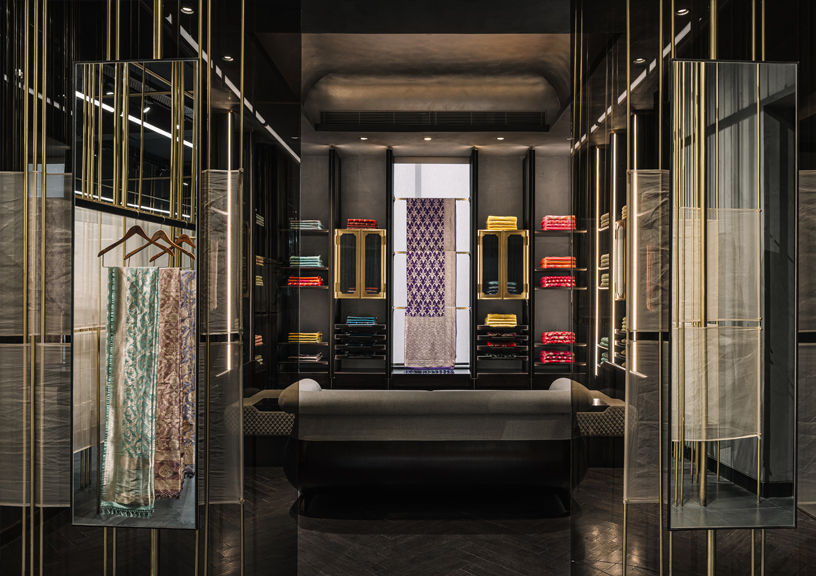
Originating in the ancient city of Varanasi, these lustrous silk saris feature fine zari metal work, opulent fabrics, and complex motifs woven using time-honored techniques passed down through generations of artisans. Ekaya honors this living legacy while giving the traditional textiles a modern voice. The design of the store seamlessly extends this fundamental principle.
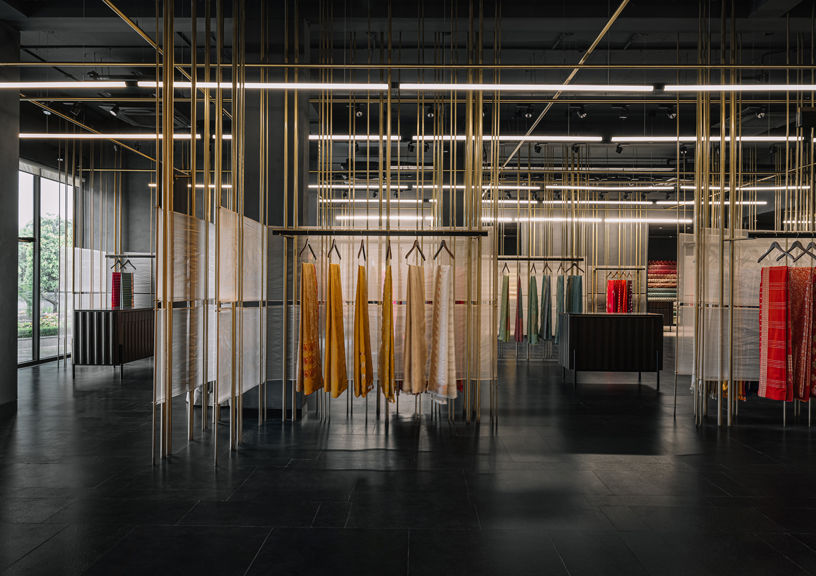
The store’s layout revolves around a modular assembly of brass pipes, visually converging to craft an immersive, three-dimensional weave. “Given the constraints of inheriting a site with a staggered column grid, the concept lends itself well to the nature of the existing physical space. This is where visitors are first introduced to Ekaya’s latest collections, collaborations, and ready-to-wear ranges. Functionally a display device which also has in-built lighting, the design allows for flexibility in how one meanders through the space—a crucial feature, given Ekaya’s expanding product base that varies widely in scale,” reveals Asha.
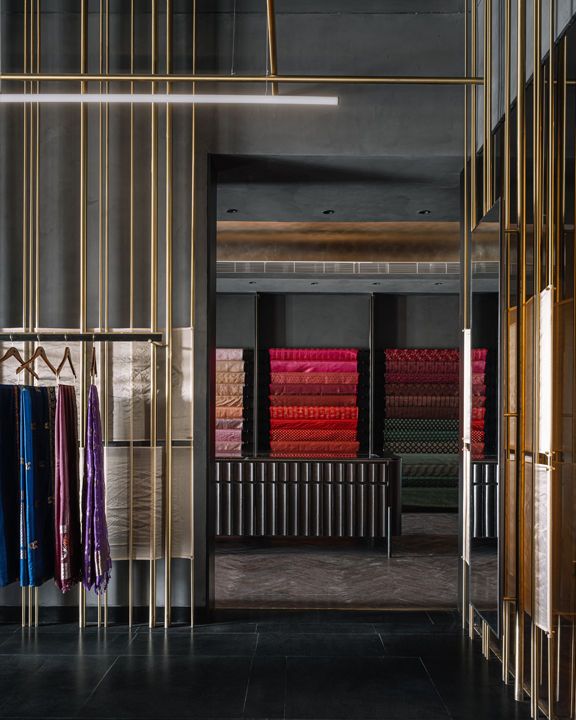
The interlaced rods form a dynamic tapestry, allowing a gradual revelation of experience zones situated beyond it. Adjacent to this central focal point, visitors encounter pockets representing the traditional retail experience associated with Ekaya. On the left, the ‘Thaan’ section showcases vibrant rolls of fabric, while on the right, adjacent to the facade, the ready-to-wear sections are displayed. Further within the store, intimate spaces dedicated to bridal wear feature traditional takkhat-style seating, creating a personalised experience for bridal parties. Slit windows in these areas allow gentle rays of daylight to illuminate the luxurious textures of the silk weaves and serve as a backdrop for visual merchandising elements.
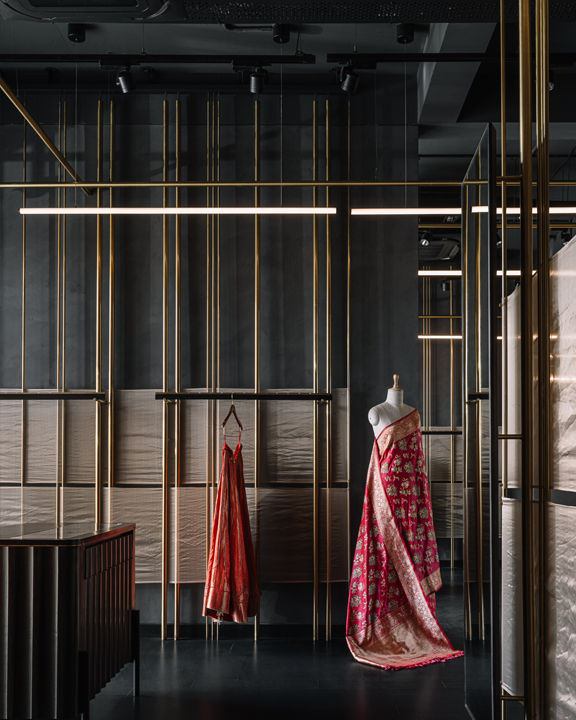
“For this store in Ahmedabad, we worked in collaboration with Studio Greymatter, based out of New Delhi. Our design goal, in response to the brief, was to transcend the conventional separation between the store and its visual merchandise—for the store itself to be the visual marker of the brand. From that, emerged our conversations about an installation that was representative of the Banarasi weave, yet to be an interpretation that was unmistakably modern and striking in form. The central brass installation, reminiscent of interwoven silk strands, becomes the focal point of the store and serves as a visual metaphor showcasing the enduring legacy of handwoven Banarasi brocade,” elaborates Asha.
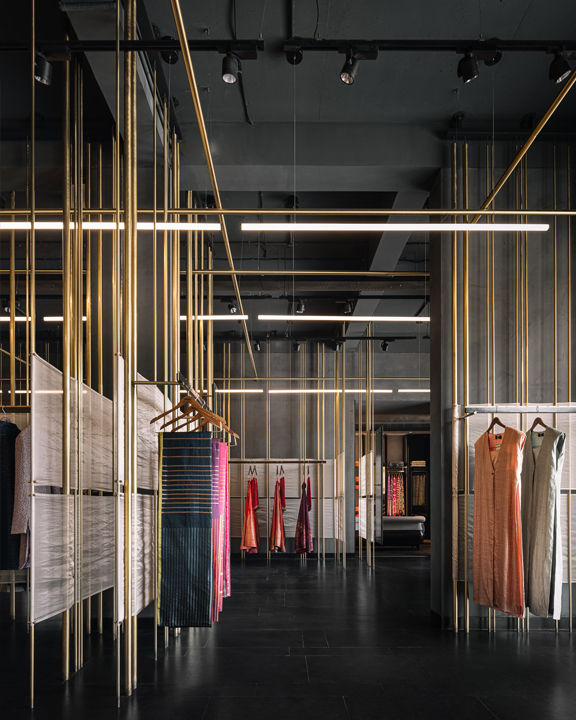
The circulation or flow of the store is meticulously designed to captivate visitors’ sense of wonder. Whether through the prominent brass installation or the subtle intricacies of the layout, the goal was to immerse shoppers in the craft, providing them with the opportunity to serendipitously discover new products and collections. Throughout, the pared-back palette of ash wood, grey paint and Kadappa stone flooring lets the regal textiles take center stage. Carefully placed accent lighting illuminates each handwoven wonder, from decadent silks to ornate zardozi detailing.
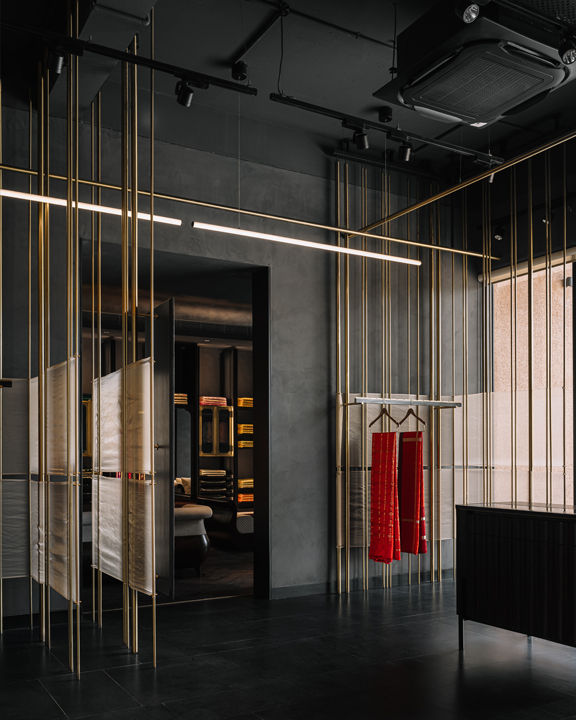
“Our work at Studio Lotus is underpinned by a deliberate focus on reinterpreting traditional crafts, infusing new meaning and dimensions into regional skills, to express luxury within spaces while remaining faithful to the spirit and culture of the places we build in. So, there has always been a natural synergy with Ekaya—a brand that over many generations has been committed to preserving and reimagining the tradition of Banarasi textiles,” explains Asha.
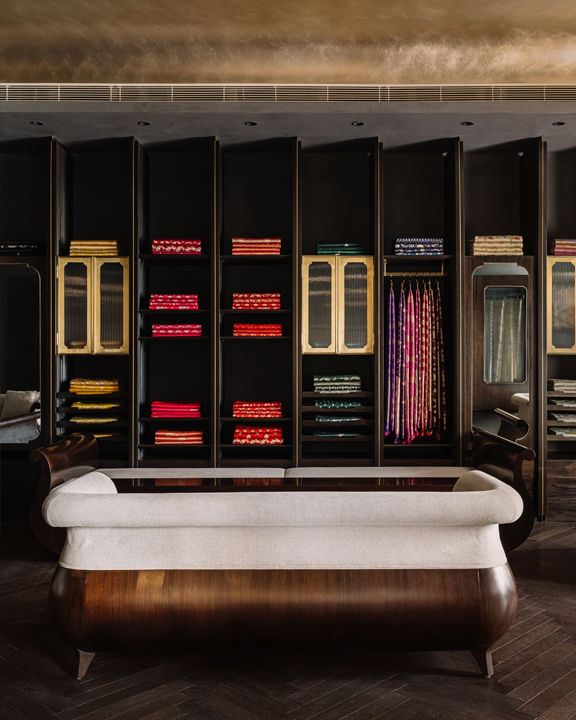
Stepping back out into the Ahmedabad streets, visitors carry with them a newfound awe for the intricate handicraft behind Banarasi weaves. Ekaya and Studio Lotus have together crafted a space that enables the sari to return to its rightful place as a work of art.
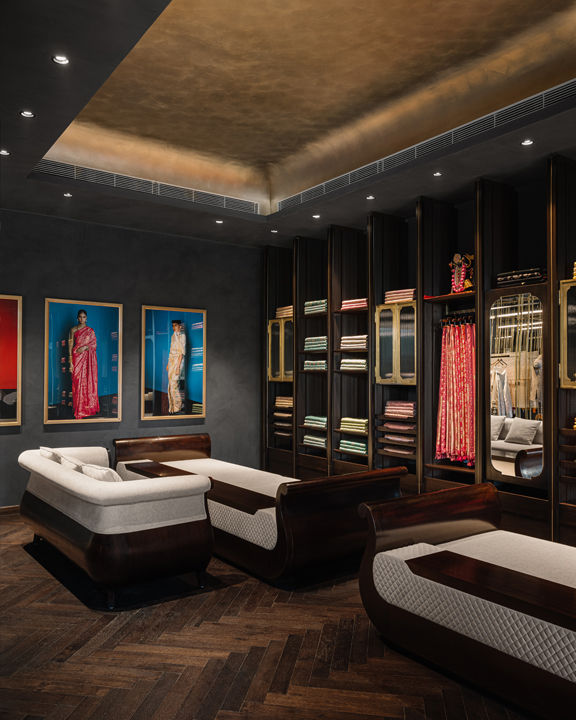
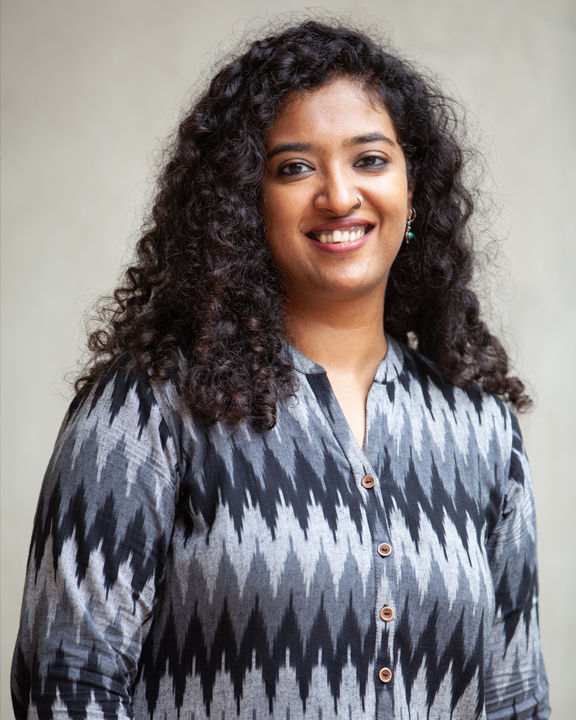
FACT FILE
Client: Bharat Shah and Palak Shah
Design Team: Studio Lotus (Lead Designer): Ankur Choksi, Asha Sairam | Studio GreyMatter (Associate Designer): Apeksha Agrawal, Tanuj Biyani, Shivangi Chaturvedi.
Site Area: 4000 sqft
Built-Up Area: 12580 sqft
Consultants: MEP – Shishir Sharma; HVAC – Future Solutions India
Contractors: Interiors—SRBS; Mechanical—HVAC: Future Solutions India;
Electrical—Shishir Sharma; HVAC—Future Solutions India
Photographs by: Ishita Sitwala
